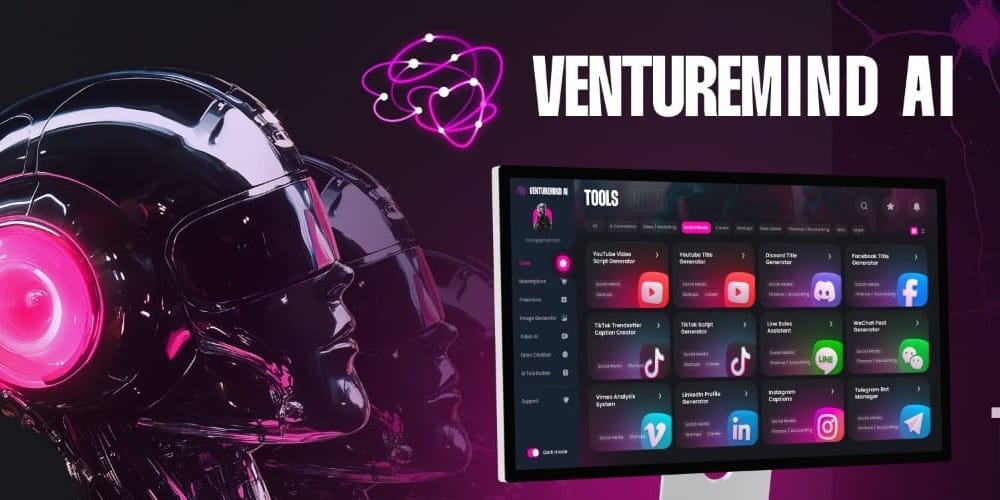Blockchain and AI, while powerful independently, offer even greater potential when combined. Their integration is paving the way for a variety of future opportunities that are expected to fundamentally transform industries, data management, and governance models. This chapter explores distinct trends shaping the future of blockchain-AI applications, focusing on decentralized AI networks, transparency enforcement, cross-industry adoption opportunities, and evolving standards—all while emphasizing transformative opportunities beyond the existing technical challenges.
Decentralized AI Networks and Federated Learning
A key trend is the emergence of Decentralized AI Networks. Unlike centralized AI solutions that require vast data repositories and often lead to data monopolies, decentralized networks distribute both the data and the AI model across multiple nodes in a blockchain network, maintaining individual control and privacy. This approach ensures that no single entity has a monopoly over AI or the data that powers it.
Decentralized AI Networks
- How It Works: Decentralized AI networks leverage blockchain to securely manage data while AI models are trained in a distributed manner. Every participant contributes computing power or data, and the blockchain ensures transparency in how the network evolves.
- New Possibilities: Decentralized networks can democratize access to AI, empowering developers and organizations to participate in building intelligent systems without being subject to centralized control by large tech companies. This fundamentally shifts power towards a more community-driven AI ecosystem.
Federated Learning and Blockchain Synergy
Federated learning allows AI models to train on data across various devices without centralizing the data, addressing privacy concerns. Blockchain ensures that training steps and data aggregation are securely recorded, offering participants an incentive-based mechanism for sharing data.
- Transformative Impact: The combination of federated learning with blockchain helps address some of the pressing concerns around privacy while ensuring the validity of distributed AI models. This approach is particularly important in sectors like healthcare, where data privacy is paramount.
Example: The Mithril project is using blockchain to support decentralized AI efforts where federated learning models are trained across participants, who are rewarded for sharing valuable data without compromising privacy. Learn more about Mithril’s decentralized AI approach.

Blockchain-Enforced Transparency in AI Decisions
AI's lack of transparency, often called the "black box" problem, has been a significant barrier to its adoption in sectors requiring accountability and traceability. Blockchain technology is emerging as a potential solution to enforce transparency in AI decisions, thus enabling greater adoption in regulated industries.
Enforcing AI Transparency with Blockchain
- Auditable AI Models: Blockchain can store metadata related to AI models—such as data sources, decision-making parameters, and outcomes—providing an auditable trail that can be reviewed by regulatory bodies or other stakeholders.
- New Frontiers for Explainability: By combining AI with blockchain’s immutable ledger, organizations can ensure that AI models are explainable and that each decision is traceable back to verifiable data points. This feature is key to enabling AI adoption in sectors like finance, healthcare, and government.
Transformative Potential:
- Building Trust in AI: Blockchain-enforced transparency helps organizations meet regulatory requirements and increase public trust. Trust is critical in industries like healthcare, where patients need to understand how decisions about their health are made, or in finance, where decisions about loans or creditworthiness must be explainable.
Example: Enigma is developing protocols that allow blockchain to enforce transparency in AI decision-making, creating secure and auditable AI models for enterprises. Learn more about Enigma’s work.

Cross-Industry Adoption: Opportunities for Innovation
The integration of blockchain and AI is poised to revolutionize multiple industries, unlocking transformative potential rather than simply solving technical challenges. This trend goes beyond traditional sectors to explore areas where blockchain and AI can deliver unprecedented value.
Healthcare:
- Opportunities for Innovation: AI’s ability to predict diseases combined with blockchain’s capacity to secure medical data opens the possibility for personalized, precision medicine that’s fully privacy-preserving.
- Transformative Use Cases: Blockchain could allow AI models to be trained on a massive amount of health data stored securely across hospitals globally, thereby overcoming the limitations of isolated data silos.
Finance:
- Smart Investment Opportunities: AI’s predictive models can be combined with blockchain’s transparency to create new types of financial products, such as decentralized autonomous investment funds. Investors could participate in funds that use AI to make investment decisions while blockchain ensures transparency of all transactions.
- Tokenized Assets: AI is being used to assess and predict the value of tokenized real-world assets (like real estate or commodities) that are tracked on blockchain.
Supply Chain:
- End-to-End Supply Chain Innovation: Blockchain’s transparency combined with AI's predictive capabilities could redefine supply chains, making them self-optimizing. For example, automated smart contracts could manage payments based on AI predictions regarding delivery performance.
New Industry Frontiers:
- Media and Entertainment: AI and blockchain can be combined to protect content rights and even generate new creative works. Artists could use blockchain to tokenize their creations, while AI helps create personalized media experiences.
- Legal Tech: The combination of AI’s contract analysis capabilities and blockchain’s immutability opens the door to smart legal contracts that automatically execute under predefined terms, making legal processes more efficient and trustworthy.
Example: VeChain is exploring the potential of blockchain and AI in logistics and supply chain, using AI to predict shipment needs while blockchain ensures transparency. Read more about VeChain.

Evolving Standards and Regulatory Developments
The success of blockchain and AI integration across industries depends on the creation of clear standards and regulatory frameworks that define how these technologies can be used safely, ethically, and efficiently.
Regulatory Developments:
- Defining Data Sovereignty: With blockchain storing data immutably, it conflicts with existing data protection laws such as GDPR. New regulatory frameworks are being discussed to allow data modification and deletion on permissioned blockchain networks.
- Ethical AI Initiatives: Regulatory bodies are increasingly emphasizing the importance of ethical AI. Blockchain provides a mechanism to enforce compliance with ethical standards by making AI training data and decision pathways auditable.
Technical Standards:
- Cross-Industry Standards: Initiatives such as IEEE P2418.7 are working towards developing technical standards for data formats, communication protocols, and security measures to ensure interoperability between AI platforms and blockchain technologies.
- Collaborative Efforts: Consortia like the Enterprise Ethereum Alliance (EEA) are working towards ensuring that blockchain networks can effectively support AI models while maintaining security and scalability, which is crucial for achieving broader adoption.
Example: The IEEE Blockchain Initiative is focusing on developing standards that align blockchain capabilities with ethical AI practices, ensuring that these technologies are used in ways that promote transparency, fairness, and security. Read more about IEEE standards.
Conclusion
The future trends at the intersection of blockchain and AI extend beyond solving immediate technical challenges—they represent a profound shift in how these technologies can be used to transform industries, democratize access to AI, ensure transparency, and drive innovation. Decentralized AI networks, federated learning, cross-industry adoption, transparency enforcement, and evolving regulatory standards are key areas where blockchain and AI are poised to make a significant impact.
As these technologies advance, the focus will shift from resolving foundational issues to exploring how blockchain and AI can work together to create smarter, more equitable systems that enhance human capabilities while ensuring privacy, security, and transparency.
Are you ready to be part of the future where blockchain and AI reshape how we interact with technology and each other? Dive into the next chapter for hands-on tutorials and resources! 🚀





Comments